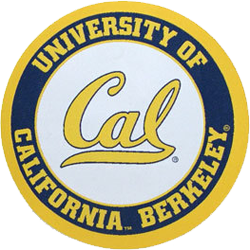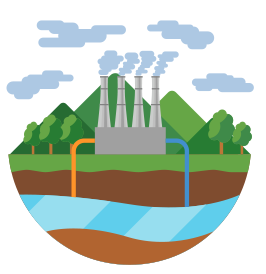Looking to get into the renewable energy field? As solar, wind, geothermal, biofuel and hydroelectric take off in the United States, colleges are quickly developing programs to train the next generation of energy experts. Check out these 25 top renewable energy programs and see how higher education is tackling energy innovation in the 21st century.
Top 25 Innovative Renewable Energy Programs

 Boston, Massachusetts
Master of Science in Energy Systems
Boston, Massachusetts
Master of Science in Energy Systems
Established in 1898, Northeastern University created a Master of Science in Energy Systems degree to meet the needs of this high-growth field. Through the program, students can participate in a range of renewable energy courses including solar thermal engineering, gas turbine combustion, general thermodynamics, combustion, and air pollution. Northeastern’s program fosters skills that bring together engineering, financing, and environmental analysis. This program is flexible, offering full- and part-time schedules and both on-site and online formats. A specialized program is also available for students without engineering backgrounds.
 State College, Pennsylvania
Bachelor’s, Master’s
State College, Pennsylvania
Bachelor’s, Master’s
Solar energy education expert Jordan Crolly attended the University of Pennsylvania State obtaining an undergraduate degree in Energy Engineering. What he appreciates most about the program is that it provides students with a broad foundational knowledge of energy and the energy industry. This has helped him in his renewable energy career as he is able to work on a variety of projects within a field that is often changing. Crolly is now working on getting his Master’s in Renewable Energy and Sustainable Systems from Penn State’s World Campus. Crolly notes that this online program gives him the flexibility to work full-time. He is able to hone his expertise at his own pace while learning from Penn State faculty members.
Most recently, the University of Pennsylvania State recently opened “Pennergy,” the Penn Center for Energy Innovation. This research center is a collaborative effort between the School of Engineering and Applied Science and the School of Arts and Sciences. At Pennergy, researchers are seeking solutions to the world’s energy challenges through state-of-the-art technologies including bio-mimetic materials and nanoscale science and engineering.
 Denver, Colorado
Master’s, Graduate Certificate
Denver, Colorado
Master’s, Graduate Certificate
University College is the college of professional and continuing studies at the fully accredited University of Denver. This online program offers students an MS in Environmental Policy and Management with a concentration in Energy and Sustainability. When completed, students will learn the economics of energy production and consumption. They will understand how strategies, sustainability concepts, and energy systems work together. Armed with this knowledge, students will be able to develop sustainability plans, identify trends in renewable energy, craft environmental policies, and more.
 Wilsonville, OR
Bachelor’s, Master’s
Wilsonville, OR
Bachelor’s, Master’s
Since 2005, Oregon Tech Wilsonville has offered a Bachelor of Science in Renewable Energy Engineering. It was the first of its kind in the U.S. The program offers undergraduate students the engineering principles they will need to create and implement sustainable energy technologies. Students are also able to pursue this degree concurrently with either a BS in Electrical Engineering or a BS in Environmental Science to graduate with a dual major. Once students have completed their BS degree, they have the option to continue at a graduate level through the University’s Master of Science in Renewable Energy Engineering, which was established in 2012.
 Berkeley, California
Master’s
Berkeley, California
Master’s
For more than 40 years, UC Berkeley’s Energy and Resources Group has been a world-renowned interdisciplinary graduate program awarding MA, MS, and PhD degrees to students from diverse disciplines. The Berkeley Haas School of Business Master’s in Business Administration program allows students to choose from different areas of emphasis, one of which is Energy and Clean Technology. Through UC Berkeley’s Cleantech to Market program, MBA graduate students and scientists collaborate to bring new technologies to market. UC Berkeley also boasts the Energy Institute at Haas, which bridges the gap between research and education programs focused on energy business, policy, and technology commercialization. Undergraduate students can pursue a degree in Energy Engineering.
 Cambridge, Massachusetts
Bachelor’s
Cambridge, Massachusetts
Bachelor’s
Developed by the Massachusetts Institute of Technology Energy Initiative, the university offers an Energy Studies minor to undergraduate students from any of the school’s five colleges. Students take a set of core curriculum courses that focus on the foundations of energy science, the social science of energy, and energy technology/engineering and then another 24 elective courses focused on energy. Students come away from the program with a general understanding of science, technology, social sciences, and policy issues surrounding energy and climate change. This minor helps set students on a path toward tackling climate and energy challenges as they receive hands-on learning and work with world-renowned researchers and policy analysts.
 Ann Arbor, Michigan
Master’s
Ann Arbor, Michigan
Master’s
Students at the University of Michigan can now opt to pursue a Master of Engineering Program in Energy Systems Engineering. This recently approved program is the first in the nation to cater specifically to leaders who want to design and implement energy systems to meet environmental and energy challenges. This specialization is focused on engineering, science, and the development of policies. Students will come away from the program not only with the ability to design systems as engineers, they will also be able to communicate effectively to promote the use of sustainable technologies and encourage policies that support renewable energy.
 Raleigh, North Carolina
Diplomas, Certificates
Raleigh, North Carolina
Diplomas, Certificates
The NC Clean Energy Technology Center at North Carolina State University is administered by the University’s College of Engineering. Among other programs, The Center operates the DSIRE, the most comprehensive source of information on incentives and policies that support renewables and energy efficiency in the U.S. The Center’s Renewable Energy Technologies (RET) Diploma Series meets the accreditation standards of the Interstate Renewable Energy Council (IREC) Institute for Sustainable Power Quality (ISPQ). The Center offers diplomas or certificates in Fundamentals of PV Design and Installation, Fundamentals of Solar Thermal Systems Design and Installation, Renewable Energy Management and more. Lyra Rakusin is the Senior Renewable Energy Training Specialist for the NC Clean Energy Technology Center and runs the RET Diploma Series.
 Aurora, Colorado
AA
Aurora, Colorado
AA
The EchoTech Institute is unique in that it’s the first and only college that focuses exclusively on renewable energy, sustainability, and energy efficiency. The nationally accredited college offers AA programs that can be completed in as little as 18 months. EcoTech ensures small class sizes, hands-on instruction, and career placement assistance. Students will find a flexible schedule at this renewable energy school with day or night classes and some online courses. Students can choose from AA degrees in Renewable Energy Technology, Solar Energy Technology, Wind Energy Technology, and other sustainability and technician degrees.
 Lowell, Massachusetts
Master’s, Doctorate, Graduate Certificate
Lowell, Massachusetts
Master’s, Doctorate, Graduate Certificate
Students can earn a Master’s and Doctoral degree, as well as a Graduate Certificate, from UMass Lowell’s Renewable Energy Engineering Program (REEP). The program’s 25-year history has expanded from focusing solely on solar energy to now including other renewable energy sources such as fuel cells, green combustion, and wind turbines. Students participating in the Nuclear Engineering Program are also eligible to gain the degree in Energy Engineering. Through this degree, UMass Lowell prepares students to find real-world solutions to real-world problems, such as designing off-grid solar systems for rural farms, improving the reliability of wind turbines, or helping increase the global use of renewable energy.
 Neosho, Missouri
AA, Certificate
Neosho, Missouri
AA, Certificate
Crowder College collaborated with the School of Engineering at the University of Missouri at Rolla to design its Alternative Energy Program. Students looking for a two-year Associate of Arts or Applied Science degree can choose from Solar, Wind, and other sustainability programs. The Solar focus gives engineering and science students an applied foundation in solar technologies and applications. The Wind program centers on wind turbine technology. The college participates in the U.S. Department of Energy’s Solar Decathlon and in 2012 their project won People’s Choice Award. Crowder College also operates the state’s renewable energy education center, known as the Missouri Alternative and Renewable Energy Technology Center.
 Stanford, California
Bachelor’s, Master’s, Graduate Certificate
Stanford, California
Bachelor’s, Master’s, Graduate Certificate
Stanford’s Atmosphere/Energy program builds on the link between Civil and Environmental Engineering. This unique combination encourages students to fix atmospheric problems by using their knowledge of energy efficiency alongside their understanding of energy technologies. Degrees in this field include a BS, MS, and PhD. Professionals already engaged in the field of engineering or science can take advantage of Stanford’s new programs in Energy Technologies. Students can earn Stanford credit and a Stanford certificate for completing four graduate-level engineering courses online and participating in learning cohorts with other graduate students and professionals. Students learn from Stanford faculty, industry experts, and researchers.
 Boston, Massachusetts
Bachelor’s, Master’s, Graduate Certificate
Boston, Massachusetts
Bachelor’s, Master’s, Graduate Certificate
Boston University’s College of Engineering provides undergraduate engineering students the option to pursue a dual major in energy technologies along with their main field (mechanical, biomedical, computer, or electrical). To obtain this dual degree, students are required to complete 16-credits in Energy Technology courses. Boston University’s College of Arts and Science also offers a Master’s level program in Energy & Environment. Non-degree options include BU’s graduate-level Certificate in Energy and Sustainability that can be completed completely online. Students come away from this program with a broad knowledge of energy policy, environmental science and economics, management, and key engineering skills.
 San Francisco, California
Master’s
San Francisco, California
Master’s
Through the University of San Francisco’s College of Arts and Science, interested students can pursue a Master’s of Science degree in Energy Systems Management. Courses are taught by USF faculty who have first-hand energy-sector experience. The program of study includes classes on Energy Economics and Finance, Energy Technologies, Energy Policy, and Science Writing and Presentations. The program is designed with both traditional students and working professionals in mind and takes 18 months to complete. Upon completion, students will be equipped with the skills and knowledge needed to enter the energy field. Classes are held on campus in downtown San Francisco.
 Jackson, Michigan
Bachelor’s
Jackson, Michigan
Bachelor’s
Working to prepare a pipeline of qualified professionals to work at local utility companies in Michigan and beyond, Jackson College has created an energy-focused program of study. Students at the college can begin their careers in the energy sector with an Associate’s degree in Energy Production Technology and continue on to achieve a Bachelor’s in Science degree in Energy Systems Management. The new associate degree program prepares students to be entry-level technicians while the bachelor’s degree takes students to the next level, providing technicians with management-level abilities. Students complete the program with skills in problem solving, communication, management, and financial management.
 Muncie, Indiana
Bachelor’s
Muncie, Indiana
Bachelor’s
People seeking an interdisciplinary approach to learning about energy use, conservation and development at the undergraduate-level should consider Ball State University. Whether majoring in business, planning, the life, physical, and earth sciences or industrial technology, students can pursue the University’s interdepartmental minor in Energy choosing from courses in solar and alternative energy systems, energy policy, economics, or planning. The Center for Energy Research/Education/Service at the University is an innovative interdisciplinary academic support hub that also reaches out to the community to help identify, research, promote, and implement state-of-the-art alternative energy solutions.
 Bloomington, Indiana
Master’s
Bloomington, Indiana
Master’s
Indiana University’s School of Public and Environmental Affairs students pursuing an MS in Environmental Science or an MPA can choose Energy as their specialized area of concentration. Through this concentration, students will learn how energy is produced, financed, and used as well as the life cycle of energy resources. Students can take courses in Energy Economics, Analysis, and Markets, Sustainable Energy Systems, Coal Utilization and Carbon Sequestration, and more. Students will finish their degree equipped with the knowledge and skills to address today’s most pressing energy issues.
 Illinois, Chicago
Master’s
Illinois, Chicago
Master’s
The College of Engineering at the University of Illinois Chicago (UIC) offers a Master of Energy Engineering degree. This degree provides students with knowledge of practical applications, covering everything from power production to storage to delivery. Located within the College of Engineering is the Energy Resources Center, an interdisciplinary research, public service, and special projects organization. Focused on distributed generation, energy efficiency, biofuels and bioenergy, the ERC is helping to develop solutions that address energy and environmental challenges. The Center also conducts modeling, implementation, educational outreach, and technical assistance in the fields of energy conservation and production technologies.
 Boone, North Carolina
Master’s
Boone, North Carolina
Master’s
Lyra Rakusin suggests interested students look into Appalachian State University that offers a Master of Science in Technology with concentrations in Renewable Energy Engineering, Appropriate Technology, and other sustainability and energy efficiency focuses. Graduate students have been able to learn and develop their knowledge and skills within the field of green technologies by serving as lead investigators and assistants in renewable energy research and outreach projects. Students have worked as project managers for competitions such as the U.S. DOE Race to Zero (winning first place in the competition in 2016), the Solar Decathlon, and for service outreach with agencies like Habitat for Humanity.
 Durham, North Carolina
Bachelor’s, Master’s, Doctorate
Durham, North Carolina
Bachelor’s, Master’s, Doctorate
Another college touted by Rakusin is Duke University. Duke offers an Energy Engineering Minor for undergraduate students in the College of Engineering and boasts the Gendell Center for Engineering, Energy, and the Environment. The Center helps undergraduates gain the technical and intellectual skills to meet real world problems. Duke also offers a number of Master’s and Doctoral degrees in areas like business and law, for students interested in energy though not specifically focused on engineering. Rakusin explains that you don’t have to be an engineer or have a renewable energy degree to work in the renewables field. Lawyers, MBAs, policy analysts, and others are critical to the work being done in renewable energy.
 Lincoln, Nebraska
Bachelor’s
Lincoln, Nebraska
Bachelor’s
Undergraduate students from across all majors are able to secure a minor in energy science. The minor was created with support from UNL’s Nebraska Center for Energy Sciences Research. Students in the Colleges of Agricultural Sciences & Natural Resources, Engineering, Arts & Sciences, and Architecture who obtain the minor will come away with a broad understanding of energy principles, energy economics, energy in society, and energy’s impact on our environment. UNL is proud to note that two recent graduates who completed the Energy Sciences minor are now enrolled in two of the top energy and environmental graduate programs at Indiana University and Stanford University.
 Iowa City, Iowa
Bachelor’s, Master’s, Doctorate
Iowa City, Iowa
Bachelor’s, Master’s, Doctorate
More than 31 percent of Iowa’s electricity is generated by wind, according to Iowa’s Utility Board. It is no surprise then that students interested in wind energy can turn to the University of Iowa for degrees in Engineering with a focus on Wind Power. Graduate students in the College of Industrial Engineering can choose to pursue an MS or Ph.D. degree in Wind Power Management area. This program strives to teach professionals how to design, operate, and mange wind power farms across the country. Undergraduate students from various areas of study can also take courses to receive a Certificate in Wind Energy.
 Atlanta, Georgia
Bachelor’s
Atlanta, Georgia
Bachelor’s
Georgia Tech undergraduate students can pursue a minor in Energy Systems. For the University’s School of Aerospace Engineering students, the track is modified to fit their unique needs. This minor is designed to add breadth of knowledge to areas outside of a student’s major with courses in energy policy, alternative energy, wind engineering, thermal systems engineering, life cycle cost analysis and intro to combustion. Students also complete a Project in Energy Systems course. Georgia Tech produces the most female engineers in the country, and through its targeted programs and recruitment efforts, beats the U.S. average for female enrollment in engineering.
 Syracuse, New York
Bachelor’s and Master’s
Syracuse, New York
Bachelor’s and Master’s
The University of Syracuse has an interdepartmental Energy Sources, Conversion, and Conservation research area and is working to be an internationally recognized leader in clean energy. An option for students interested in supporting this effort and pursuing a career in energy systems engineering can seek an MS Degree in Energy System Engineering from Syracuse University’s College of Engineering and Computer Sciences. The university also offers undergraduates in the College of Arts and Sciences the option to pursue a BA or BS in Energy and Its Impacts. Undergraduate engineering students can also choose an Energy Systems Minor.
 Boulder, Colorado
Master’s, Graduate & Undergraduate Certificates
Boulder, Colorado
Master’s, Graduate & Undergraduate Certificates
The Renewable and Sustainable Energy Institute (RASEI), located at the University of Colorado Boulder (CU-Boulder), is a joint venture between the university and the National Renewable Energy Laboratory (NREL). Offering both graduate and undergraduate certificates in renewable and sustainable energy, as well as a Master of the Environment with specialization in renewable and sustainable energy, RASEI provides its students with a practice-based program focused on energy and science technologies, sustainable energy law and policy, and business practices and skills in the renewable energy sector. Aside from its Master of the Environment degree, RASEI’s certificate programs are open to graduate and undergraduate students at CU-Boulder from any major and department.
Explore: Types of Renewable Energy
Clean, renewable energy is generated by harnessing the power of inexhaustible and naturally occurring sources like wind, solar, biomass, geothermal, and hydro. Traditional sources of electricity, like oil, coal, and natural gas are limited and release greenhouse gas emissions when burned.
Energy from the sun can be harnessed through photovoltaic or solar thermal technology to create clean, renewable electricity. The industry needs scientists working in research and development and engineers to connect that research with commercial applications. The U.S. Bureau of Labor and Statistics notes that engineers are one of the most sought after occupations in the solar industry. Other solar careers focus on solar PV installers, manufacturing, solar power plant development, construction, and more.

The U.S. BLS explains that wind power capacity grew 39 percent from 2004 to 2009 and is expected to continue growing rapidly. Occupations in this field are all related to the manufacturing, project development, operation and maintenance, of turbines and wind farms. Careers include scientists, engineers, and engineering technicians to design and test turbines. Machinists, computer-controlled machine tool operators, assemblers, welders, quality-control inspectors, and industrial production managers help to produce turbines.

According to the U.S. Department of Energy, America’s oldest and largest source of renewable energy is water. Water power has vast potential and is available in every region of the country. The DOE estimates that by 2025, 140,000-440,000 new jobs will be created by hydropower in the U.S. Mechanical, civil and electrical engineers conduct hydro research and development. Construction managers, hydropower strategy directors, hydroelectric plant operators, and engineering analysts help operate, manage, and maintain the hydroelectric plants.

The U.S. is a global leader in geothermal energy with more 3,000 MWs of installed generating capacity, according to the BLS. The industry requires a variety of workers to build, operate and maintain the geothermal plants. Scientist, geologist, hydrologist, and wildlife biologists work on geothermal development and research. Civil, electrical, environmental, and mechanical engineers design, monitor and direct equipment operations. Drilling the wells requires derrick operators, driller operators and roustabouts. Construction workers are needed to build the plants.

Biofuels made from biomass, including biodiesel and ethanol, are in demand. According to the BLS, in 2011 the U.S. produced nearly 14 billion gallons of ethanol. The industry needs biochemists, biophysicists, chemists, and microbiologists to find better ways to create biofuels. To test products and design machinery it also needs nearly every type of engineer. Construction laborers are needed to build processing plants and to create the feedstock for biofuels, the industry also needs agricultural laborers.

International Career Opportunities
Renewable energy opportunities go far beyond U.S. borders. According to the 2015 Annual Renewable Energy and Jobs Review by the International Renewable Energy Agency, global renewable energy jobs increased by 5 percent and is now at 8.1 million.
Countries that boasted the highest number of jobs in the industry:

In 2015, CHINA was the leading provider of renewable energy jobs. China leads in eight of the nine different renewable energy sectors. In the solar PV industry alone, the country provided 1.7 million jobs, more than half of all solar employment globally.
BRAZIL, with the second greatest number of renewable jobs, has a biofuel workforce of 821,000, making up 15 percent of global hydropower employment. For those interested in liquid biofuels, South America is the place to be with Colombia, Argentina and Brazil leading the biofuel job markets.
The UNITED STATES continues to grow its renewable energy jobs primarily in solar and wind and reached 769,000 jobs in 2015. Women are increasingly part of the U.S. renewable energy workforce.
INDIA is the fourth largest provider of renewable energy jobs, with 125,000 in solar PV and 85,000 in biogas.
With a robust domestic market, JAPAN’s renewable energy sector increased jobs to 388,000 in 2015.
GERMANY, with 371,000 green energy jobs, is widely regarded for its wind energy and has 138,000 jobs in that sector.
Is an Online Renewable Energy Degree Right for You?
-
An online renewable energy program is a flexible and convenient way to receive a degree, diploma, or certificate. Students are not limited by class times and location and can instead learn at their own pace choosing from schools across the nation that offer the best programs for their needs.
-
This type of learning format is best for working professionals seeking to advance or change their career path. Crolly appreciates the flexibility of his online program through Penn State but also notes that this type of format is not for everyone. He explains that online students need to be self-starters and that the ability to network and develop relationships with peers and instructors is not as easy compared to traditional on-site programs.
-
Engineers with foundational knowledge looking to learn more about energy technologies may be more interested in graduate-level degrees that can be competed through online courses. Undergraduate students looking make friends and personal connections might prefer an on-site program.
-
The chart above provides a detailed catalog of some of the top renewable energy programs in the country. Local high schools, universities or colleges also have academic counselors that can help guide students to find the best renewable energy program for their needs. Rakusin notes that before students begin searching for any type of program, it’s important to know what they are good at and passionate about first.
-
Crolly notes that online programs are different from traditional classroom-based programs in that face-to-face interaction with the instructors and peers is limited. Students sit in front of their computer watching webinars, seminars, and lectures online. Students may have online meetings with instructors or engage in message boards or chat-room discussions with their peers. Assignments are conducted online and most instructors require students to complete assignments within a limited timeframe.
-
It is critical to do your homework when choosing an online degree program. Students need to ensure that the university or college is accredited. Students can go to the U.S. Department of Education’s College Navigator tool to find accreditation information and more.
Resources

As a renewable energy advocacy group, the United States Renewable Energy Association, LLC, (USREA) strives to encourage and educate advanced technologies in the renewable energy industry. Find news, a blog, and information about current events and resources from other renewable energy supporters.

ACORE is committed to advancing renewable energy through financial innovation, market growth, and policy changes. This 15-year old non-profit has an expert staff experienced in promoting renewable energy along with hundreds of member companies and organizations.

The NEED project began 35 years ago and encourages students to explore, investigate and engage in energy education. NEED offers energy focused curriculum, professional development training, and support for afterschool programs, student clubs, and more.

The Power Shift Network is a national network of grassroots organizations including student-led groups that are committed to mitigating climate change and creating a sustainable and thriving community for all.

Since 2002, Engineers for a Sustainable World (ESW) has been working to build a more sustainable world. Made up of students, university faculty, and professionals, ESW conducts education outreach and participates in community, campus, and global sustainability projects. Jordan Crolly is the Program Manager for ESW’s Resilient Community Design Challenge.

The non-profit Association for the Advancement of Sustainability in Higher Education (AASHE) provides higher education staff and students with sustainability conferences, workshops, webinars, newsletters, online resources and directories, and a sustainability leadership award program.




